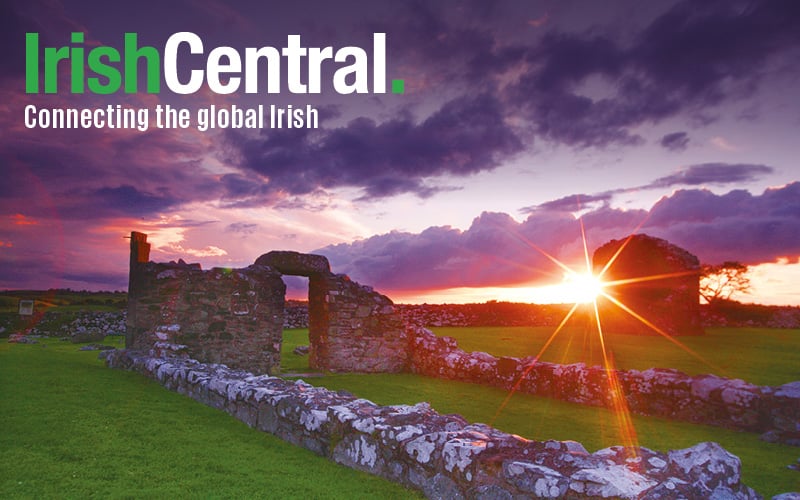Liam Neeson has revealed how he touched Michael Collins’ blood when making the movie about the Irish revolutionary who led the Irish forces in the War of Independence. Collins was shot and killed in the subsequent civil war at just 32 years of age.
In a revealing interview in The Irish Times by Patrick Freyne, Neeson, who just received the Irish Film and Television Outstanding Contribution award, says regarding Michael Collins: “I don’t think you ever feel like you’ve got your head round it.”
“Certainly with Collins there was wonderful research to be done and I got to know members of his family . . . I had two buttons from his uniform [which] I wore around my neck for the shooting – just little talismans. And I actually touched his blood.”
“Someone, it must have been a member of his family, had a letter that was folded up in his pocket when he was shot and there were blood stains on it.”
He said the film would never have been made but for David Geffen the Hollywood mogul stepping in. He said director Neil Jordan had a hit movie Interview With a Vampire and they asked him what he wanted to do next “‘I want to do this film about Michael Collins’ and of course they said ‘Who’s Michael Collins?’ and he told them and David Geffen of all people came on board. David was responsible for getting Warner Brothers to make Michael Collins.”
The 63-year-old Ballymena man also says the former Unionist firebrand, later peacemaker, Ian Paisley had a profound influence in the way he delivered lines.
“I went into a little gospel hall a couple of times to hear Ian Paisley preach,” he says.
“I just slipped in and my gosh, what an orator he was. He’d put the fear of God in you. You could see this extraordinary performance, the charisma that he had. It was very powerful. It had an effect on me. At the Catholic church we tend to be a lot quieter. What Reverend Ian was doing in those days was your old classic bible thumping – fire and damnation. I remember thinking . . .” he laughs . . . “I’d love to be able to do that.” He says he owes his career to the strong tradition of amateur theater that exists in the North.
“There were all these festivals going on, usually around Easter time,” he says. “There were all these little towns – Bangor, Larne. They’d have these dramatic festivals for a week or a week and a half and all these groups would be presenting plays – American plays, European plays, Irish plays – and these would be going on throughout all the years of the Troubles.”
He says he found it tough when he first moved to America.“In those days, there’d be lots of auditions where you’d get ‘well you’re just a bit too tall, you’re just a bit too Irish, your nose is a bit too this’. There’s always rejection in this business. You have to develop a tough skin.”
He said that day is gone. “Everyone in America now seems to be very familiar with European accents and certainly Irish accents.
Did he know going into it that the Taken franchise would become so iconic?
“Not at all,” he says. “I remember meeting [writer] Luc Besson in Shanghai at a film festival there and I had read the script and approached him [and said] ‘I know you’re obviously not thinking of me, but just to let you know, I’m an amateur boxer and I’d love to get the chance to do something like this’. The next thing you know I was offered it.
“To me, it was a straight-to-video movie, but it was three months in Paris fight-training every day, doing all that shit I love. So I was like a kid in a toy shop, having a field day knowing that this is going straight to video, that no one is going to see it,” he laughs. “Not that I wasn’t proud of that film. I was very proud of it.”
He says he remains Irish at heart “I’m a very proud Irish man and I’m also a very proud Ulsterman,” he says. “Factories closing down back home, that really touched me, because I have friends and colleagues and acquaintances who worked in those establishments. If I can use my celebrity status for anything I’m certainly glad to do that. And I’ve been a supporter of Amnesty International for 30 years. I just think they’re an extraordinary organisation.”
He says he gets his news from Ireland via publications like our sister publication the Irish Voice. “We’d need three hours to talk about that (Ireland)," he joked to the interviewer.




Comments